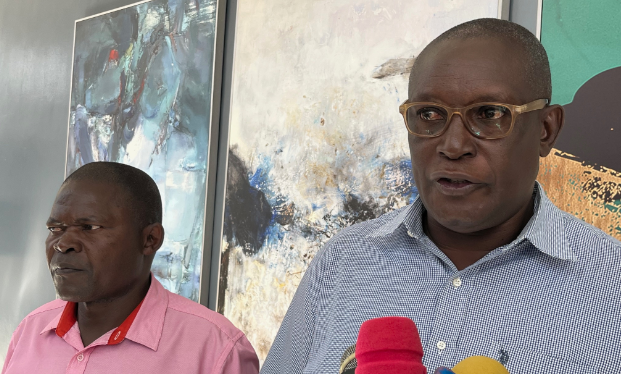

Enhanced funding will be allocated to combat Neglected Tropical Diseases, county officials from the Rift Valley and Western Kenya have said.
In a meeting in Eldoret, the health officials said they are exploring new methods to sustain the fight against NTDs due to dwindling donor support for related activities.
During the meeting, which was hosted by Amref – a leading partner in financing the battle against NTDs – resolutions were passed to enhance budgets for the diseases in their respective regions.
The health officers were drawn from Trans Nzoia, Kakamega, Vihiga and Bungoma counties.
Kakamega’s director of Public Health William Olota and county NTD coordinator Joseph Wanyonyi, reported that over Sh60 million has been allocated through various departments to combat NTDs using multi-departmental approaches.
"We've allocated Sh4.5 million directly to NTDs this year, but cumulatively, we have over Sh60 million for related interventions. That's in addition to donor support and other community activities," Olota said.
Wanyonyi noted that jiggers and bilharzia are among the main NTDs affecting residents in several subcounties in the region.
Caro Makali, Bungoma's Executive for Health, affirmed their agreement to gradually increase the budget for NTD elimination activities. "
“As a county, we will ensure we put in more resources and also step up activities that will involve all stakeholders including communities in the fight against NTDs," she said.
Makali noted a positive trend in budgeting for NTDs in Bungoma, where the allocation increased from Sh200,000 in 2021 to over Sh10 million in the upcoming budget.
"The money isn't adequate so far, but we're also looking at a multi-sectoral approach in the fight involving all stakeholders. The national government has also played a critical role in all ongoing efforts," she added.
"We're working on a multi-sectoral approach to jointly step up activities around the fight against NTDs and with shrinking donor funding, we're working to increase our focus on these diseases as counties to sustain the fight."
Amref officials warned of a possible surge in the spread of 17 NTDs, with over 25 million Kenyans at risk in most counties.
Vincent Ouma, NTDs programme manager at the organisation, explained that out of the 21 NTDs listed by the World Health Organization, 17 are common in Kenya.
He highlighted intestinal worms, jiggers and bilharzia as being prevalent. Currently, 10 million Kenyans suffer from at least one NTD and require treatment, particularly across 32 counties.
"The spread of the diseases depends on geographical areas, but regions like Western and Coastal are endemic and chances of getting infected are high in such areas," Ouma said.
With dwindling donor funding, Amref urged counties and other partners to allocate increased funds to support the fight and potential eradication of NTDs, which pose a significant threat to many lives.
"We are, however, now calling on counties to focus and invest more in NTDs because the diseases are needlessly affecting many Kenyans, yet they are preventable and treatable with available drugs and other activities that can be done to eliminate them," he said.
Amref has been conducting mass drug administration, treatment and sensitisation on behavioural change and they are committed to continuing the fight.
"It's possible to eliminate NTDs because many other African countries have done it and with the work being done now, it's possible to do the same in Kenya," Ouma said.
He added that Kenya has earmarked certain NTDs for elimination, such as elephantiasis and sleeping sickness.
"With increased support from counties and concerted efforts, it's possible that we will wipe out some of them by the year 2030."
Robert Wetoti, the county coordinator for NTDs in Bungoma, said about Sh30 million is required annually to effectively combat the diseases in the region through treatment, purchase of dewormers for bilharzia and community sensitisation.
His Trans Nzoia counterpart Norbert Musudi reported that the county needs Sh25 million annually to fight NTDs, with Sh12 million allocated in the new budget and additional support expected from donor partners.
"We'll also discuss ways of enhancing the budget for NTDs so that we move towards the elimination of these diseases," Musudi said.










